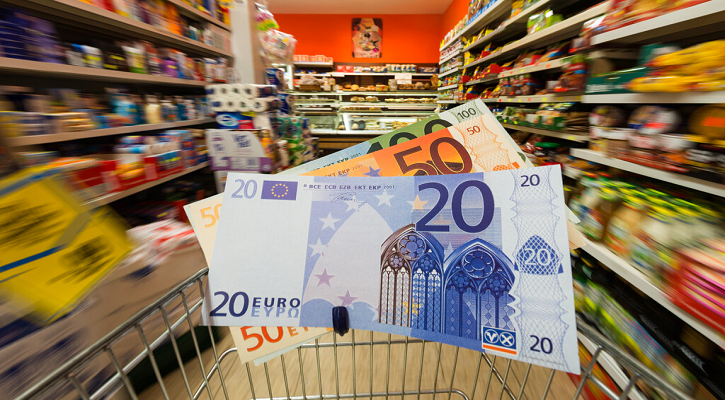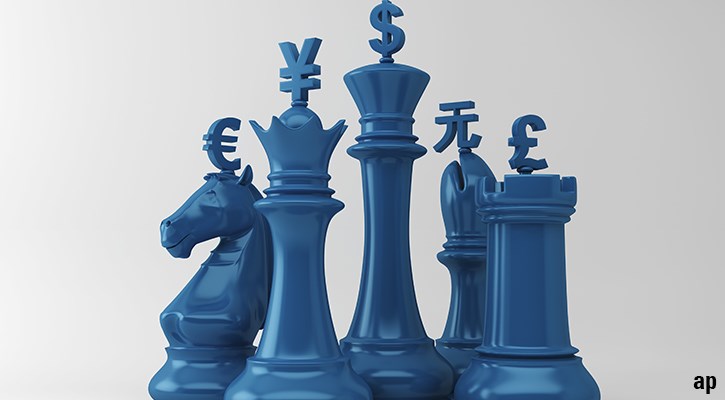
Markets are looking ahead to flash data on eurozone inflation on August 30 as the ECB's September 12 meeting approaches.
Inflation is forecast to be 2.2% higher than August 2023 levels, according to FactSet consensus estimates, but below the previous month, which saw a price increase of 2.6% year on year in July.
Core inflation, which shows prices without energy and food costs, is expected to have fallen slightly to a 2.8% year-on-year rise in August, from 2.9% in July.
"Investors will be happy to hear that the spike in inflation we witnessed in July should abate once again in August, with economists expecting a headline reading of just 2.2%, a 40 basis point fall on last month, and a number much closer to the European Central Bank’s targeted level," said Michael Field, European market strategist at Morningstar, adding that estimated data for core inflation "remains materially higher than the 2% targeted inflation level; however, it is at least moving in the right direction."
In July 2024, the greatest contributors to the annual euro area inflation rate (HICP) were services (+1.82 percentage points, pp), followed by food, alcohol & tobacco (+0.45 pp), non-energy industrial goods (+0.19 pp) and energy (+0.12 pp).
According to Tomasz Wieladek, chief European economist at T. Rowe Price, the likely drop to 2.2% of the euro area headline HICP inflation in August, is mainly a result of falling energy prices in August 2024 versus August 2023, so-called "base effects".
Wieladek expects that core HICP inflation will stay at 2.9% for August. "Services HICP inflation, the most reliable measure of underlying inflation, will likely remain at 4%. Some of the strength in services inflation in August can likely be explained through one-off pricing effects related to the Olympics in France. However, services inflation remains significantly above levels consistent with the ECB’s target,” he told Morningstar.
What Are Investor Expectations for Inflation?
In August, the long-term inflation expectations indicator reached its lowest level for almost two years, according to the Financial Times.
The “five-year, five-year forward inflation swap”, that measure the expected inflation rate over the five-year period that begins five year from today, dropped below 2.1% last week for the first time since October 2022.
In the minutes of the July meeting published on August 22, the ECB said “the incoming information and forward-looking indicators had generally supported the Governing Council’s previous assessment of the medium-term inflation outlook”. Headline inflation is expected to fluctuate around current levels for the rest of the year, and to decline towards the target over the second half of next year and then stabilise around the target in 2026.
Core inflation had been higher than expected, according to ECB’s minutes, and it is “still subject to upside risks given the repeated upside surprises in services inflation.”
Will the ECB Cut Interest Rates in September?
The next ECB monetary policy meeting will take place in Frankfurt on September 12, and economists largely expect an interest rate cut.
According to ECB minutes, officials are approaching the meeting with “an open mind” to cutting interest rates. “The September meeting was widely seen as a good time to re-evaluate the level of monetary policy restriction”, the minutes said, adding that data dependence did not mean “to being overly focused on specific, single data points”.
According to Morningstar's Field, "with inflation seemingly settling at or around where we need it to be, and unemployment stable, the ECB should be reaffirmed in its course of action. This sets us up nicely for further rate cuts this year".
Wieladek said: “While services inflation momentum, has come down from the strong levels seen in the first half of the year, it remains too strong and too sticky. However, inflation is clearly not the only relevant datapoint for monetary policy. Negotiated wage growth in Q2 2024 has come down significantly. Business surveys highlight the risk that the economy could be slowing more than expected."
Wieladek expects that the ECB will cut its policy rates again in September by 25 basis points. “As the euro area recovers from the large supply side shock due to high energy prices, it is likely that this stagflationary picture of sticky inflation and weak activity will persist for some time”, he added. “This is why I believe that the ECB will only cut at quarterly pace after September 2024 and likely stop cutting at a deposit facility rate of 2.5%.”



























